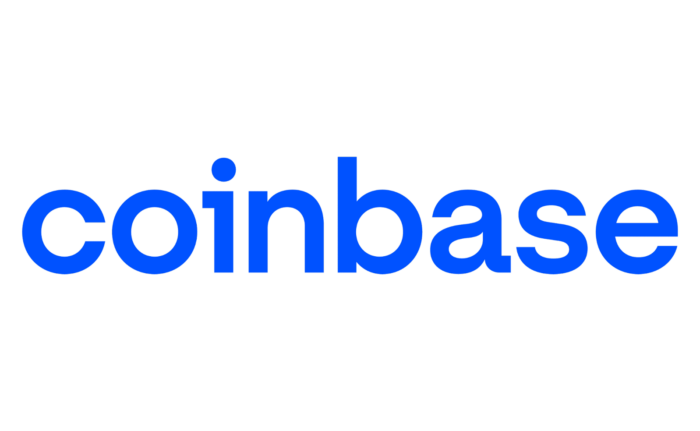The financial technology (fintech) industry has witnessed immense growth since 2010. According to Statista, investments in the sector topped $247 billion in 2021.
Globally, the industry’s transaction value is forecast to reach close to $10 trillion by 2027. This figure reveals the impact finance technology companies are having on customer’s lives as well as their growing capacity to challenge incumbent players’ dominance in the industry.
This article highlights six fintech solution companies leading the charge for industry upheaval. It also examines what fintechs can gain by working with reputable software development companies.
How fintech solutions are improving traditional financial systems
Before the internet became commonplace, traditional financial systems were the dominant players in finance. Unfortunately, their processes were not very efficient. Customers often faced inefficiencies in customer service, approvals, and convenience.
Fintech solution companies improve on these inefficiencies in various ways. For one, they offer the convenience of on-demand finance management. Customers no longer have to drive to a financial institution and can manage their finances from anywhere at any time.
Additionally, financial technology solution companies enhance customer service by letting customers service themselves. Self-service is likely to improve further as GenAI technology improves, thanks to the growing number of generative AI startups.
Fintech solution companies have also proven to be more agile with approvals for loans, transfers, and so on by relying on artificial intelligence and data analytics. These factors and more are responsible for the fintech industry’s growth.
If you’d like to learn more about where this industry is heading, read our article on the future of fintech.
How we picked the top fintech solution companies
Here are the factors we considered when creating our list of the top fintech companies:
- Innovation: innovation was the top criterion we used to include the companies on our list. We examined how their solutions found innovative ways to solve customer problems.
- Market Impact: we also chose companies based on their market impact, particularly the effect they had on traditional finance institution’s market share and business models.
- Scalability: many of the companies on our list received investor dollars. We included companies that were able to scale their operations quickly and grow their user bases.
- User Experience: finally, we considered the user experience of these fintechs and whether they provided a better user experience than the incumbents in their respective sectors.
All companies discussed met the above criteria, warranting their inclusion on this list.
Top six financial technology solution companies
The seven fintech solution companies discussed below are among the most innovative alternatives to traditional financial institutions:
1. SoFi

Since its founding in 2011, SoFi has grown to be one of the largest lenders in the financial industry. The company has issued over $6 billion worth of loans while maintaining a zero-fee policy (excluding interest fees).
This successful digital lending business model and 19 funding rounds culminated in the company going public in early 2021. At the time of writing, SoFi’s market cap is at $7.14 billion.
SoFi offers a laundry list of financial services that cut across areas like banking, cryptocurrency, investing, and lending. It uses cutting-edge technologies to provide personal, student, and home loans, fee-free stock, ETF and cryptocurrency trading, cash management accounts, and more.
Through financial products like SoFi Money, customers can open checking and savings accounts with the company. It also released SoFi Relay, a free budgeting and credit score monitoring tool. SoFi has undoubtedly staked its claim as a major player in the financial services and banking industries.
2. Afterpay

Since 2014, Australian-based Afterpay has offered its customers a buy-now-pay-later (BNPL) service that lets them pay for products in four installments. The company is a subsidiary of Block Inc., having been acquired by its parent company for $29 billion in early 2022.
Through acquisitions of other BNPL services (for example, the UK’s Clearpay) and other financial processes, Afterpay operates in five major fintech markets: the US, UK, Australia, New Zealand, and Canada. According to the company, its main customers are millennials and university students.
Afterpay’s competitive edge is its interest fee repayments. When an Afterpay user misses a payment, they incur a $10 late fee. These fees comprise a significant chunk of the company’s revenue, at approximately 24.4%, with merchant fees making up the remainder. This financial technology company is currently publicly traded.
3. Square
Even if you’ve never heard of Square, you might be familiar with its co-founder Jack Dorsey’s former company, Twitter Inc. (now simply “X.com” under Elon Musk).
Square entered the financial industry in 2009 and continues to serve a customer base that predominantly consists of other businesses. Like Afterpay and Cash App (below), Square is a Block Inc. subsidiary company.
Square offers a range of financial digital products for businesses. Through Square Capital, its merchants can receive financing to aid their liquidity management efforts. Its Square Financial Services affiliate (a member of the Federal Deposit Insurance Corporation) provides banking services.
In addition to digital solutions, Square sells physical products, including Square Reader for credit cards, Square Stand, which transforms an iPad into a point-of-sale (POS), and Square Register, the company’s other POS system.
4. Cash App

Cash App is a peer-to-peer payments company that lets customers send money from their mobile devices. Since its 2013 launch, its user base has grown, hitting a 70 million annual users milestone in 2021.
Like traditional financial services companies, Cash App issues credit and debit cards (a.k.a. the Cash Card). In 2018, it began facilitating money transfers from the app into bank accounts via automatic clearing house (ACH) direct deposits. That same year, Cash App waded into the world of digital wallets by allowing its users to trade Bitcoin.
Cash App added an investment section in 2020. The feature is only open to Adult US residents, letting them trade fractional shares through the app. The company earns revenue from the 1.5% fee it charges for instant transfers to linked bank accounts. It also lends the money its users deposit to third-party institutions and charges interest on these loans.
5. Robinhood

Investment fintech firm Robinhood has been active in the financial services industry since 2013. The company offers its customers a commission-free way to trade stocks, digital currencies, ETFs, and other financial market instruments. By 2017, the company had facilitated $30 billion worth of trades!
Robinhood has made its mark in the fintech market as a disruptive tech-driven company. When brokerage firms like E-Trade began offering free trades to their users in 2019, they attributed their decision to competition with Robinhood. In 2022, it recorded 15.9 million monthly active users.
Like most financial technology solution companies, Robinhood is subject to regulatory compliance. It’s registered with the Securities and Exchange Commission (SEC) and falls under the Financial Industry Regulatory Authority (FINRA) jurisdiction.
In early 2023, Robinhood began offering individual retirement accounts (IRAs) to its customers, becoming one of the few financial software solutions to do so.
6. Coinbase

Coinbase is one of the largest cryptocurrency exchanges in the US. The platform has facilitated transactions related to financial digital assets (over 250 cryptocurrencies) since 2012. The company then went public in 2021. It currently has a $16.73 billion market cap.
As one of the largest online trading platforms in the crypto space, Coinbase has $128 billion worth of assets and a $92 billion quarterly trading volume. It operates in over 100 countries and employs a 3000+ distributed workforce.
The company provides several products for its customers, including:
- The Coinbase Wallet, which its customers can use to access decentralized crypto exchanges
- USD Coin, a stablecoin that facilitates the exchange of the US dollar for cryptocurrencies of equivalent value; and
- Coinbase Card, which is a debit card for spending crypto.
As of the third quarter of 2022, Coinbase had 108 million users, according to research published by Statista.
Why fintech companies should collaborate with software development companies
Having a great fintech startup idea is only half the battle. In fact, the most challenging bit is the implementation of the idea. And, of course, we cannot talk about a successful fintech solution without the software itself and user experience.
That’s one of the many reasons fintech solutions must collaborate with reputable software development agencies. Here are some of the benefits you can expect from this collaboration.
- Seamless user experiences: Fintech companies address the sensitive issues relating to their customers’ finances. For this reason, they must keep usability at the forefront of financial technology solution development. When a fintech sources fintech app development services from an experienced agency, the duo can build an intuitive and well-designed product.
Our agency, Miquido, has a track record of building customer-centric fintech applications. We’ve helped companies like Aviva, BNP Paribas, and SBAB design high-quality customer experiences for their financial services and banking applications.
- Quicker software iterations: After releasing an app to customers, you’ll inevitably receive customer feedback. By collaborating with a software development company, you can implement this feedback quickly to meet the customers’ needs.
This also explains why you really need to partner with a good software development agency for long-term success. With a partner that understands your product and customers, it becomes much easier to roll out the updates.
For example, we’ve partnered with Nextbank (an AI-based credit scoring engine) for three years now to support their banking app development. We’ve helped them develop critical systems, including web internet banking, cloud core banking, mobile internet banking, and agency banking, to name a few. The app has over 2 million downloads today, with processed transactions exceeding $150 million.
You can read the full Nextbank case study here.
In an era where user experience and swift adaptation to feedback are paramount, collaborating with a software development agency is not just an option. It is instrumental to the success of your fintech solution.
Bring your fintech solution to life with Miquido
The six companies we discussed have challenged once indomitable traditional finance institutions with their innovative solutions. Your potential fintech application can, too—partner with a software development agency specializing in fintech application development to bring your big idea to life.
Check out our portfolio to see how we’ve helped Nextbank and other fintech companies.







